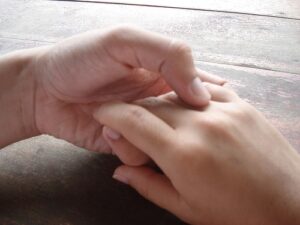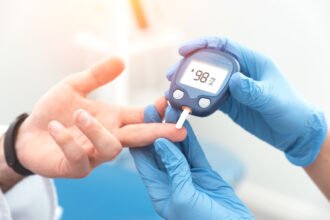 One of the things that is different about the world of rare disorders is the power and influence of caregivers in this space.
One of the things that is different about the world of rare disorders is the power and influence of caregivers in this space.
 One of the things that is different about the world of rare disorders is the power and influence of caregivers in this space. Because approximately half of the people living with rare disorders are children, parents – not patients – are often the information gatherers and decision makers. Add to that 50% the number of adult rare patients who require assistance with medication management, treatment administration, and doctor visits and you have an even larger proportion of the rare audience made up of caregivers.
One of the things that is different about the world of rare disorders is the power and influence of caregivers in this space. Because approximately half of the people living with rare disorders are children, parents – not patients – are often the information gatherers and decision makers. Add to that 50% the number of adult rare patients who require assistance with medication management, treatment administration, and doctor visits and you have an even larger proportion of the rare audience made up of caregivers.
So when new research comes out that reveals some differences in how caregivers behave online, it makes sense to listen. “Family Caregivers Are Wired for Health,” a new Pew study released on June 20, 2013, shows that caregivers are extremely active online, just like non-caregivers. But there are some surprising patterns that could be key to reaching this important audience with the information they are seeking – when and where they are looking for it.
Where do caregivers turn for health information?
According to the latest Pew research, most caregivers begin with search engines, when looking for health information.
• 8 in 10 caregivers who are online health seekers say they started at a search engine such as Google, Bing or Yahoo.
• 14% started at a specialized health site, such as WebMD
• 1% started with a general site like Wikipedia
• 1% started at a social networking site like Facebook
This is similar to data Pew has gathered on health seekers in general. But there are a variety of ways in which caregivers online are different.
Caregivers are more likely to use mobile
One important thing to note is that caregivers are more likely to use mobile for health inquiries, according to the Pew research.
• 9 in 10 caregivers own a cell phone
• 1 in 3 have used it to gather health information.
In contrast, 84% of non-caregivers own a cell phone and 27% have used their phone to look online for health information.
Caregivers are seeking connection
The Pew study also found that, in the last 12 months:
• 34% of caregivers had read or watched someone else’s commentary or experience about health online vs. 20% of non-caregivers
• 22% had searched for others with similar health concerns vs. 11% of non-caregivers
• 15% had signed up to receive email updates about medical issues vs. 7% of non-caregivers
• 11% had posted a health-related question online or shared a personal experience vs. 6% of non-caregivers
Caregivers’ Unmet Need for Information
With 8 in 10 caregivers actively seeking health information online, it’s interesting to note that their needs are apparently not always satisfied.In the Pew study:
• 59% said online resources have been helpful in supporting the person in their care.
• 52% said online resources have helped them cope with stress
One thing that may be missing is technology for tracking health data, something caregivers said they do “in their heads” or on paper far more often than online or on a mobile device. We’ll be talking more about that issue in our next post. If you’re interested, make sure you stay in touch by subscribing, liking us on Facebook or following us on Twitter.
Meanwhile, we’d like to hear your thoughts. What are the unmet needs for caregivers in the rare disorder community, in your opinion? If you’re a caregiver or member of a patient advocacy group, what information or avenue for connection would you like to see created? If you work for a pharmaceutical company, what have you done for caregivers that you are most proud of – and what else should we be considering?
Let’s see if we can generate some ideas to help the caregivers in this community that so deserve our attention and support.
Image courtesy of Denise Mayumi on Flickr (CC BY).
If you like this post, please read other posts in the series on the Person-Centered HealthCare main page. And if you have a story to tell that may be a fit with our series, please comment below or email me at joan@socialmediatoday.com






